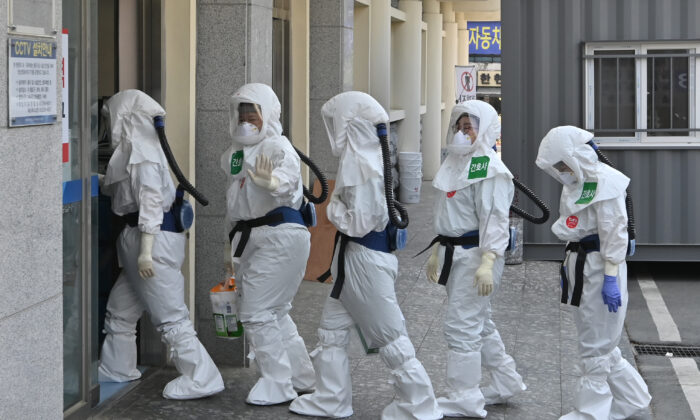India Evacuates Thousands Threatened by Cyclone Amid Pandemic
Patients who recovered from the Wuhan virus but later tested positive weren’t infectious, researchers in South Korea found.
Some 450 patients have tested positive in South Korea for the聽CCP (Chinese Communist Party) virus, which originated in China last year, after recovering. The virus causes a disease known as COVID-19.
Scientists from the Korean Centers for Disease Control and Prevention identified 790 people, including 351 family members, who came into contact with 285 of the patients.
“As of now, no case has been found that was newly confirmed from exposure during re-positive period alone,” researchers wrote in a May 19 report (pdf).
Three cases were detected among the contacts but those people had a history of contact with a religious group that was the source of many infections in the country or had a different confirmed case in their family, making it impossible to determine the source of infection.
The findings are preliminary and the investigation of the patients who tested positive after recovery and their contacts is ongoing.
But based on the new findings, experts recommended changing the description of the cases from “re-positive” to “PCR re-detected after discharge from isolation.” PCR is the most common type of testing done to detect cases of the new illness.
South Korean authorities also said schools and employers shouldn’t require people to test negative for the CCP virus if they recovered from the illness.
 Medical staff move a patient with COVID-19 from an ambulance to a hospital in Seoul, South Korea on March 9, 2020. (Chung Sung-Jun/Getty Images)
Medical staff move a patient with COVID-19 from an ambulance to a hospital in Seoul, South Korea on March 9, 2020. (Chung Sung-Jun/Getty Images)“Under the new protocols, no additional tests are required for cases that have been discharged from isolation,” researchers said.
The CCP virus causes no symptoms in a significant portion of those infected. Symptoms for patients who are symptomatic include fever, dry cough, aches and pains, and chills, according to case studies.
Time from infection to symptoms is one to 14 days.
Scientists found that, on average, it took 44.9 days from the time the first symptoms appeared to test positive after discharge. It took 14.3 days from discharge to testing positive.
Nearly half of the patients who re-tested positive had symptoms, including cough and sore throat.
Researchers attempted to take virus samples from the patients who tested positive again and grow them in culture but were unsuccessful.
One theory: fragments of the virus remained in the patients after recovery.
“We鈥檙e putting more weight on the theory that dead virus fragments remain in a recovered patient鈥檚 body, since we haven鈥檛 seen evidence of infectivity,” Ki Moran, a professor at the National Cancer Center who’s advising the South Korean government, told the Wall Street Journal.
Officials told reporters Monday that more data is needed to confirm why patients are re-testing positive.
Focus News: COVID-19 Patients Who Tested Positive After Recovery Didn’t Pass Virus to Others
